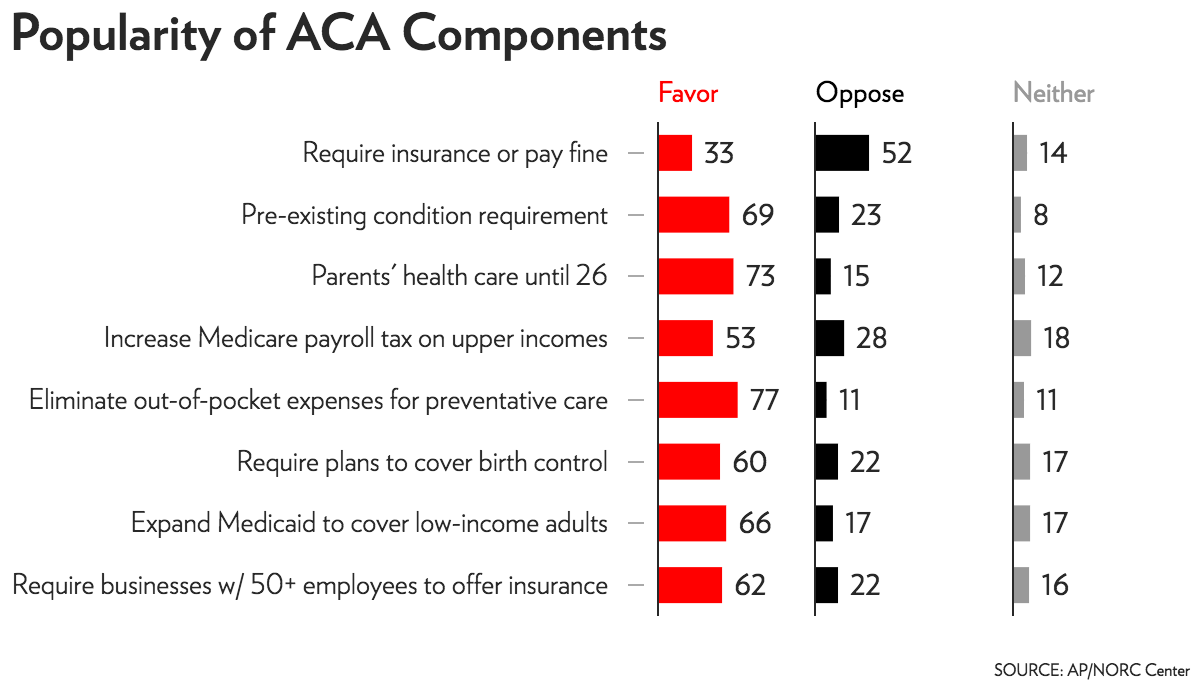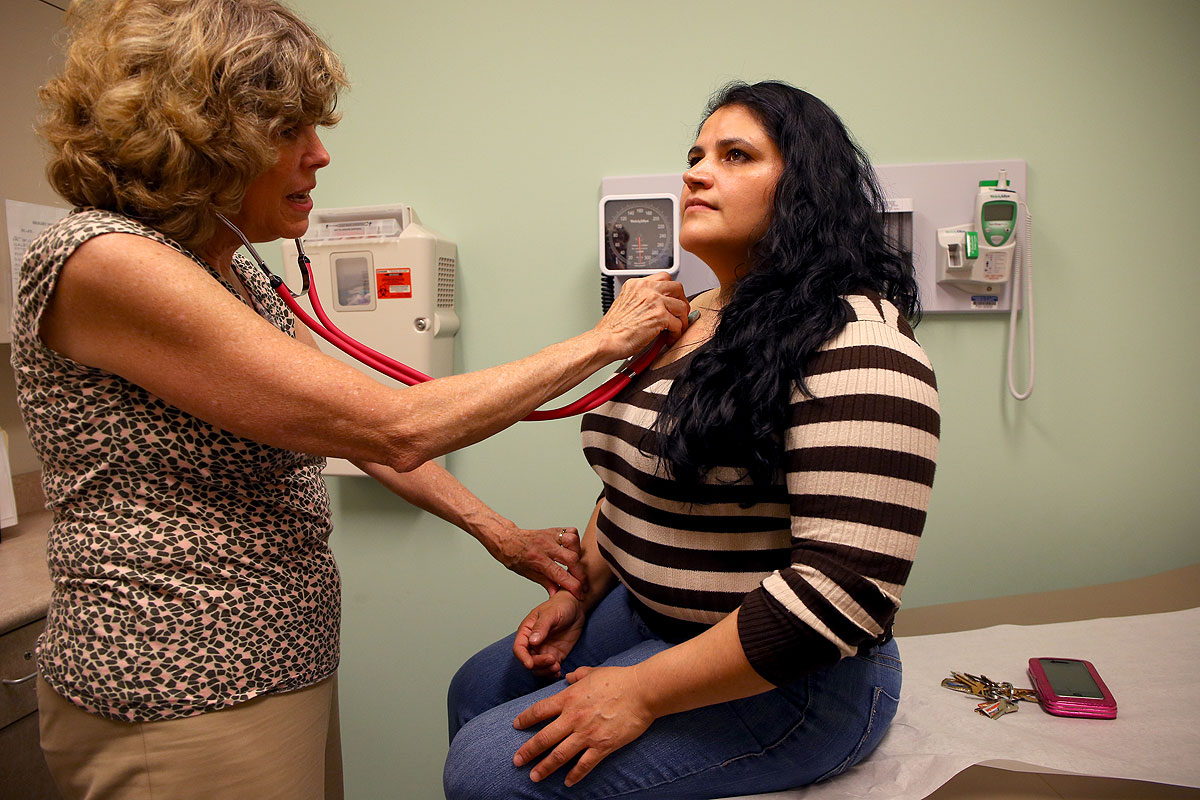Not long ago I wrote about how the GOP faced a genuine problem with their promise to not only repeal and replace the Affordable Care Act, but to replace it with something that met their promise to be more affordable (for both recipients and the government), more flexible, and provide better care. From 2016 to 2017, health care became the single most important issue for voters across the ideological spectrum, while a majority favored fixing the ACA rather than repealing it and replacing it. And when my colleagues surveyed local congressional offices, healthcare was the number-one issue constituents had been calling about.
The worst-case scenario seems to have happened. Pleasing everyone across the political spectrum would have been a miracle; instead, the American Health Care Act is doing the opposite. "Virtually every prominent conservative health care expert—precisely the sort of ideological allies who have backed [Paul] Ryan in the past—panned this legislation," writes Eliana Johnson in Politico. A separate Politico article details how the right-wing House Freedom Caucus opposes it. The American Medical Association, the American Hospital Association, and, perhaps most importantly, the AARP, oppose it.
The AARP opposes it because their analysis finds that it will hit the elderly hard (here's another), with premium increases on low-income earners in the thousands, while pushing Medicare's current insolvency date up by four years after ACA tweaks pushed it back 11 years. And if that happens, a Standard & Poor's analysis finds that of the six to 10 million people they project will be without insurance, significant enough on its own, many of them will be older and sicker. The 55-and-older set votes often, and often votes Republican.
In his pre-post-mortem, Matthew Yglesias writes that "over time, the GOP replacement plans keep evolving to look more and more like the status quo." Based on polling I've written about, the GOP doesn't have a lot of choice.
That's further emphasized by more data from the AP/NORC Center at the University of Chicago. Even the major individual pieces of the Affordable Care Act are extremely popular.

Furthermore, every component that has a net-favorable rating has a higher "strongly favor" rating than "somewhat favor." Only the stick, the individual mandate, has a net-oppose rating—and the AHCA replaces it with a penalty that raises legal issues which prevent it from easily passing through the Senate, and risks pushing up premiums even further.
So who does like it? "This bill seems exquisitely designed to please nobody—except for rich people who want a tax break. Perhaps that’s why one of the few groups to praise the bill was Americans for Tax Reform," writes Derek Thompson in The Atlantic. Avik Roy, a prominent health-care analyst from the right side of the political spectrum, writes that "it sounds like a left-wing caricature of mustache-twirling, top-hatted Republican fat cats." But the Club for Growth, Americans for Prosperity, and other free-marketeers hate it, so right now it's looking like a failure on that front as well.
It's early, and it looks like a mess right now. The ACA did too, but the GOP is pressing a much faster timetable. It's a huge political risk: if they fail to pass a bill, or perhaps even worse, succeed in passing something that works worse than the ACA, they'll have not only failed at their first major legislative test under the Trump administration, but what numbers suggest is their most important one.



